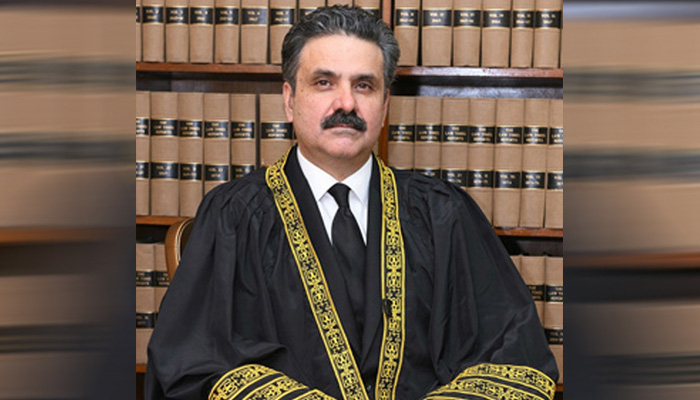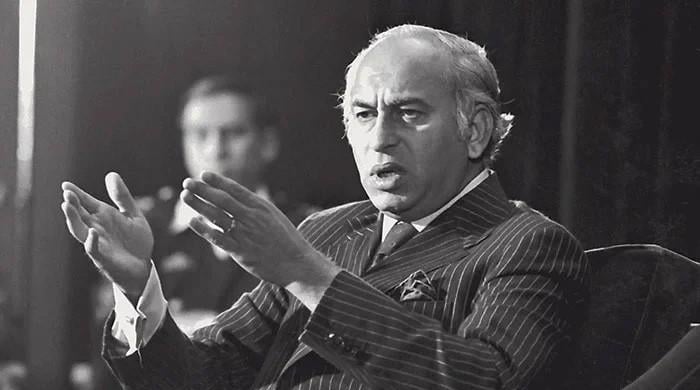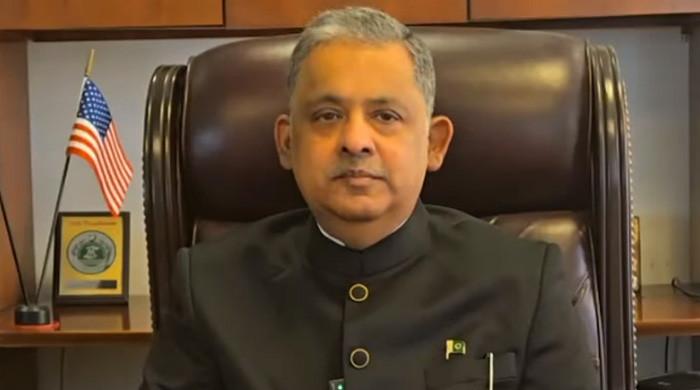Parliament went beyond its power in providing right to appeal: Justice Afridi
Apex court's Justice Yahya Afridi issues additional note after detailed verdict on law curtailing CJP's powers
December 27, 2023

- Justice says Parliament must adopt "right course" to provide appeal rights.
- "Providing right of appeal against SC order a positive thought," judge says.
- He says Section 5 is ultra vires and "of no legal effect".
ISLAMABAD: Hours after the Supreme Court's detailed verdict in the case pertaining to the law clipping the chief justice of Pakistan's (CJP) powers, Justice Yahya Afridi on Wednesday evening issued an additional note, stating that providing the right to appeal is possible via constitutional amendment.
"With utmost respect for Parliament, I declare that Section 5 of the Act has been enacted by Parliament beyond its ordinary legislative power conferred on it under the Constitution; section 5 of the Act is, therefore, ultra vires the Constitution, and thus of no legal effect," the justice said in a 24-page note.
The said section grants a right of appeal retrospectively against an order passed by a top court bench exercising jurisdiction under clause (3) of Article 184 of the Constitution, while its sub-section (2) vests a right of appeal to any aggrieved person against whom an order has been passed under clause (3) of Article 184 of the Constitution prior to the commencement of the Act, providing retrospective effect to such exercise of right.
However, Justice Yahya is of the view that the Parliament must adopt the "right course", which he said is to "amend the Constitution" to provide a right of appeal against orders passed by the top court.
"I may mention here that providing a right of appeal against an order passed by this Court in its original jurisdiction is, no doubt, a positive thought to better ensure the requirements of fair trial and due process; but in pursuit of a positive outcome, the law not less than the fundamental and supreme law of the land - the Constitution – cannot be disregarded," the note read.
The apex court's full court bench — comprising all 15 judges of the apex court — had on October 11 declared the SC (Practice and Procedure) Act 2023, as “constitutional” with a 10-5 majority.
The apex court had struck down a section dealing with retrospective effect of the law, in its decision.
Five members of the bench — Justice Ijazul Ahsan, Justice Muneeb Akhtar, Justice Sayyed Mazahir Ali Akbar Naqvi, and Justice Ayesha A Malik, and Justice Shahid Waheed — had opposed the law in their judgments on the pleas challenging the law.
By a majority of 8-7 — CJP Justice Qazi Faez Isa, Justice Sardar Tariq Masood, Justice Syed Mansoor Ali Shah, Justice Amin-ud-Din Khan, Justice Jamal Khan Mandokhail, Justice Athar Minallah, and Justice Musarrat Hilali dissenting — sub-section (2) of section 5 of the Act (granting a right of appeal retrospectively) was declared to be ultra vires the Constitution.
By a majority of 9-6 (Justice Ahsan, Justice Akhtar, Justice Afridi, Justice Naqvi, Justice Malik, and Justice Waheed dissenting) sub-section (1) of section 5 of the Act (granting a right of appeal prospectively) was declared to be in accordance with the Constitution.











